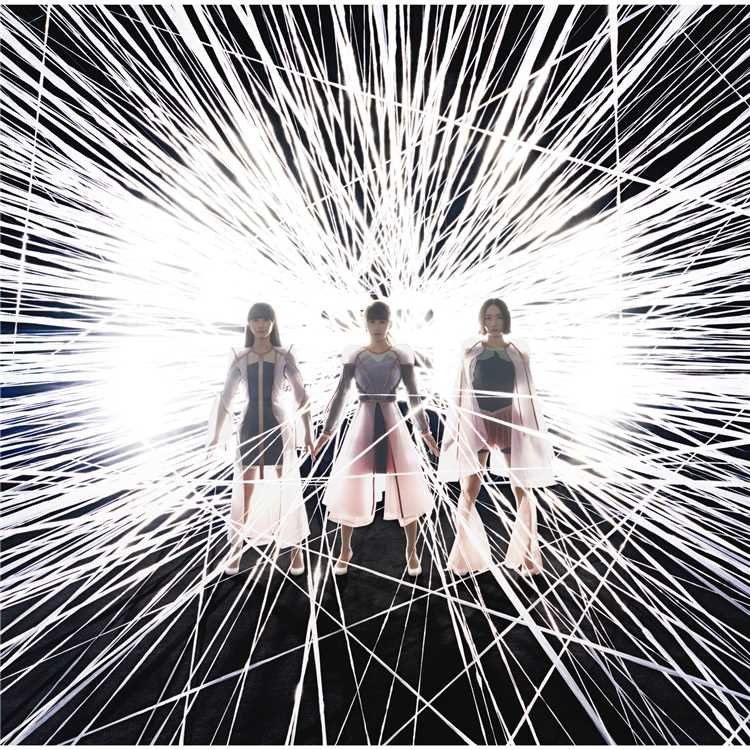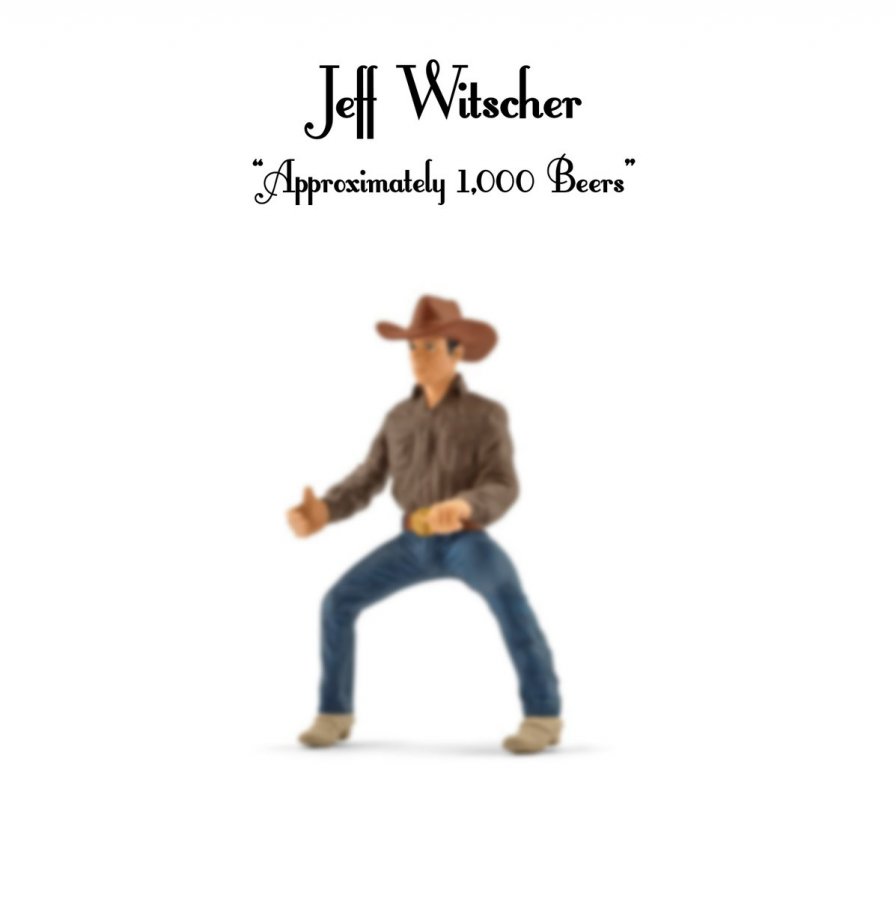For each year's first three quarters, we celebrate by sharing a list of our favorite music releases. Unlike our year-end lists, these quarter features are casually compiled, with an aim to spotlight the underdogs and the lesser-heard among the more popular picks. More from this series
At last, we present our final quarter feature before heading into the year-end festivities. Our favorite releases from 2018’s third quarter — spanning roughly mid-June to mid-September — were culled somewhat informally through staff ratings and individual pitches, resulting in picks that flow right into TMT’s general taste next to ones that feel resistant to the awkward, subsuming implications of a “canonizing” endeavor like this.
This quarter found us listening to pop both fractured (Tirzah) and mythological (Perfume), where synapses and electrical relays fired off in all different directions (Fire-Toolz) while “saw wave” slapstick perked our ears up (die Riehe). There was Greek mythology (Hermit and The Recluse), hallmarks of the singeli sound (Bamba Pana), and transmodern monuments to Western cowboys (Mitski, Jeff Witscher). The apocalypse may have been on the dance-floor (Amnesia Scanner), but so too was a new kind of healing (Upgrayedd Smurphy) and, not to mention, the sexiest voice in music (Channel Tres). And while the list may start with brittle, stagnant majesty (Yves Tumor), it ends with a galactic curtain call (Spirtualized).
Check out the list below, and thanks as always for reading. We appreciate you all. <3
Yves Tumor
Safe in The Hands of Love
[Warp]

With all of us horfing down so much dry food, we got a nerve using “stale” in the perjorative. Stagnant majesty looms large with Yves Tumor’s pleasant surprise of a twisty-turny, gloomy pop record. It’s a brittle thing. A desolate clam shell crunch. Dull brilliance, twitchy, sticky sheen getting heads cozy well zonked. Flashback rock with the traumatic clamor turned up to eye-jellying levels (thanks in part to rowdy guests oxhy and Puce Mary). Every sour rumination grows like time-lapse lichen, climaxing brilliantly with Preoccupations-style throttle when you “Let the Lioness In You Flow Freely,” sealed in your serene stupor. Safe in The Hands of Love is an exquisitely junk-drawer despondent case for ending this 2018 business early.
공중도둑 (Mid-Air Thief)
무너지기 (Crumbling)
[Self-Released]

Like Elephant 6 East or the Yellowest of Houses, Crumbling by South Korea’s Mid-Air Thief is a masterpiece of autumn psychedelia. It may not quite transcend its influences, but that’s hardly the point. The album is the enchanting sound of a million fireflies lighting your way home through the forest, everything fragmented by this rotten world coming together again as one fantastically buzzing ecosystem. Put this thing on, walk outside, and breathe the crisp air of some idealized forest clearing, so many golden oranges and yellows. “I am alive!” you may scream, never surer of the truth of the statement. “I am aliiiiiiiiiiiiive!!!!!” Its title Crumbling is something of a misnomer. This is music for picking up the pieces and becoming whole again.
SHYGIRL
Cruel Practice
[NUXXE]

“Oh, I guess you know, just how far I like to go…,” but is the listener brave enough to follow you there? SHYGIRL’s is a shivering yet brutal world of menacing alleyways and the screeching squeak of fingers drawn across PVC, early Tricky hauntology for times even darker than the 90s. Blane Muise’s disaffected spitfire flow floats and dives over an insistent production that’s somehow both grimey and crystalline. Those whiney extroverted introverts should consider themselves lucky they don’t have SHYGIRL’s problems, but on the other hand, Cruel Practice is the sound of her having them and not caring… and it’s stupefying.
Armand Hammer
Paraffin
[Backwoodz Studioz/PTP]

Blurb this shit: ROME is ONE OF THE BEST ALBUMS OF ALL TIME. Its follow-up, Paraffin is, well, its follow-up. As with any Armand Hammer full-length, there are moments of searing brilliance, challenging beats, rhymes that make worlds of everyday observations and mundanities of world events, that make the immediate everlasting and vice versa. It has, however, the unfortunate position of arriving on the heels of ONE OF THE BEST ALBUMS OF ALL TIME. This being repeated for posterity, Paraffin is remarkable in that although it materializes just nine months after ROME, it does not exist only in the shadow of its predecessor. Rather, at least judging by the larger critical response, Paraffin might actually prove to overshadow ROME when all is said and done, when lists are tallied and listeners consider their preferred alt-rap projects. If ROME’s greatness was unlistable in the total awfulness of its earth-scorch, then Paraffin’s is the stuff of which lists are made, the ground upon which critical appraisal must kneel in obeisance. No, no, don’t get up. Simply shrug shoulders and say, yeah, you got us there.
Mitski
Be the Cowboy
[Dead Oceans]

Be the Cowboy. The title brings to mind John Wayne, Rooster Cogburne, the Marlboro Man, The Sundance Kid — all these alpha male types. The songs are stories, little missives from mostly women narrators struggling with the gulf between their self-presentations and the frailty they feel inside — they grow jealous over exes they mean to be friends, they ask for “one good movie kiss,” they and their husbands are sticking together “at least in this lifetime.” The music mixes Puberty 2’s grunge accents with new wave and the polish of, like, Alright, Still — gleaming on top and a little glowering beneath. Mitski’s tie-in merch has presented whimsical variations on the title — “free the cowboy” on a combination lock, candy apple red; “feed the cowboy” on a hoop spoon, color ditto; “dream the cowboy” on a pillow case. Each slogan a tiny call toward a kind of self-actualization, to a little misguided confidence, to a sure hand, half earned, in a whirlwind. It is as if to say, maybe, for all the issues there are with cowboys, above-named and otherwise, if you could peel away some of the certainty of their being, their ease in the world, like a string off a string cheese, you really might have something.
Perfume
Future Pop
[Universal J/ Perfume]

I want you to think how eyes stopped you still in a field of falling rain and light. I want you to remember how voice made you break, how you could feel the edges of your heart’s ventricles shake. Did you understand that language? Did you let not knowing stop you from imagining a tomorrow? You didn’t. “You make me happy every day.” You gave me Future Pop, a re-reminder to live and love that sounds like a happy, maximalist treatise. Kashiyuka and A~chan and Nocchi, angels like the Muses and Shirelles before them, sing the story of how we want and where we go to remember wanting. Yasutaka Nakata, a Hesiod of synth-psalm, traces us into believing in pop songs as real mythologies. You ever think the future might be now, every, every minute? Look around (“light-wave”), breathe deep (“skyway”), and sing in me — kiss me and miss me, all the way to how we’ll be how we already are (“future pop!”)
Jeff Witscher
Approximately 1,000 Beers
[Salon]

Approximately 1,000 Beers isn’t all that unlike a country album. A plunderphonic dive, a cowboy’s hazy bender, Witscher paints the American West with as tragicomic a tone as cowboys from Townes Van Zandt and Merle Travis to Willie Nelson and John Prine would deliver. A cut-up vocabulary, Witscher gives it over to this intoxicated rambler, a brisk tale of desperation. Layers of soundworlds in varying fidelity undo one another and form a pastiche of the foreign lands in our own backyard. Anachronism abound. An uncanny turn upon Sun Araw (The Saddle of the Increate) and an oddly fortuitous resonance with Mitski’s transmodern monument to Western kitsch (Be the Cowboy) seems to call for three cheers and a whopping “this town ain’t big enough,” you know? It’s supposed to be funny, that much is clear, but how a punchline can do you in. Track 10 gives me chills every time, but don’t jump the gun: sit back, relax, and drink “approximately one zero zero zero beers.”
Channel Tres
Channel Tres EP
[Godmode]

Channel Tres must have been waiting for the right term to come along to describe his music. If so, it’s no coincidence he waited for the #BDE trend. It once felt like hip-house would never move out of the apartment Fast Eddie built, but when this EP came along… well, it was like Tres grabbed a backpack and a beanie and hit the bricks. “You ain’t never heard shit like this from the block before” is right. Besides having the sexiest voice in music (quote me, MTV!), Tres is an illustrious cultural artist, cooking up deep, animated rhythms with an almost supernatural ability to amplify classics while grooving on a contemporary frequency. The influence of an L.A. upbringing on his crooked persona — crucial to his bizarre charm — maketh the package complete. Merely five tracks into what I hope is a long career, Tres is already an irreplaceable artist.
Low
Double Negative
[Sub Pop]

Isn’t it funny how the bands most successful at pulling off a credible “radical reinvention” are usually the ones also the most at ease with playing to their old familiar strengths? Maybe that’s because it’s not revolution, but evolution that provides the biggest impetus for change in the long run: with experience comes perspective, and with perspective comes the kind of rock-solid confidence that makes doing the unprecedented feel like the most logical thing in the world. After all, you can’t start building the New Thing until you have to have the Old Thing nailed down, and Low unquestionably have that Old Thing nailed FLAT… which is probably why Double Negative — while it certainly ain’t your Gen X older brother’s slowcore — still retains the steady and satisfying feel of three master craftspeople riffing off of over two decades’worth of career highlights. The result resembles some wild new feat of contemporary architecture that still feels perfectly safe to wander around inside of, because you know that it still sits on top of a deep and dependable foundation.
RP Boo
I’ll Tell You What!
[Planet Mu]

RP Boo’s legacy as one of Chicago’s most innovative producers has been long established, but on I’ll Tell You What!, the footwork pioneer’s first album of contemporaneous material, he has found a way to push his sound even farther out while simultaneously stripping it down to its core. Tracks like “U Don’t No,” centered around a melancholy piano line and featuring the repeated phrase “Do I give away my soul?,” add emotional depth and sonic warmth to the music that stands in relief to the pointillistic intricacies of the genre he helped birth. But ultimately comparing Boo to any of his progeny is bound to be fruitless; he is an individualistic talent that continues to mine the depth of his psyche to create music that is powerful, complex, and invigorating.
Bamba Pana
Poaa
[Nyege Nyege Tapes]

The sense of ecstatic release initiated by 2017’s Sounds of Sisso continues to reverberate with Poaa, the debut full-length of key Sisso producer Bamba Pana. The broadly sketched-out hallmarks of the singeli sound — propulsive beats, warped synths, rhythmic vocals-as-samples — are all present and correct, the difference here being that Bamba Pana’s spartan-yet-dense riddims are mostly allowed to speak for themselves across two sides of wax, with just the one assist from MC Makaveli. These cuts envelop the noise and the nonsense that stands before them in just about any, and every, capacity; equally exciting in both its natural live setting and at home, all who hear this are enjoined to take full leave of their senses for moments all too fleeting. In varying extremities, then, wherein breakneck drum syncopation gives way to clipped, splayed melody and vice-versa, Poaa comes as a reminder that fwd motion really is the only answer for singeli. Don’t sleep, can’t sleep.
Amnesia Scanner
Another Life
[PAN]

The light comes in the name of a voice. The name of a voice, for the light does it speak, though it renders intelligible, though it illumines. The name of a voice, for this light is an oracle, it sees. In its gaze, you are ravaged, you are ravished. The light comes AS a voice, which fucking eviscerates you in the brutality of its breath. The light of the oracle promises the unveiling of another life in this dance-floor apocalypse. Our ravishment we welcome. Dancing on the ashes of this life, we welcome our ravagement, for in the rapture that we dance, we are as AS the life that we might becomes, that other life that ruptures in the light of the voice.
Satoshi Nakamoto
dOPENet
[NYPD]

“How do you feel about America?”
Times be weird. It’s hard to get a scope on things, really. The nice thing about dub is that it can sort of exaggerate the absurdities of everyday life and “the current moment,” whatever that means. You might think that silly, but we sort of engrain and entrench the absurd in our lives in accepting our supposed powerlessness. Certainly, on an individual level, that makes sense. But perhaps it’s worthy to step back from the self and observe the absurdity for what it is. “If you’re going to be arresting these kids for dancing…”
Of course, I could just be spouting nonsense at this point. But then what isn’t nonsensical in this great big modern world of ours? We entered the mirror so long ago, we forget sometimes.
“Well, I’ll tell you what! Shit…”
Upgrayedd Smurphy
#PENINSULA
[R-CH-V]

#PENINSULA, Jessica Smurphy’s second full-length album as Upgrayedd Smurphy, shares a unique circumstance with Pharmakon’s Bestial Burden; both works irrupted from minds whose bodies were compromised during their conception. For Margaret Chardiet (Pharmakon), it was an emergency surgery that left her bedridden for three weeks; for Smurphy, an unexplained loss of mobility and energy. Both projects were products of alchemy that transformed motionlessness into kinetic energy, and yet two distinct streams of sparks emerged. Bestial Burden’s brooding viscerality was a sharp interrogation of a privileged notion of mind-body harmony, whereas #PENINSULA’s openness is a celebration of healing places and a statement of gratitude for our bodies that house us. What is remarkable about both works is not just how each expands space beyond its creator’s ribcage, but how powerful and charged with triumph these sounds are. #PENINSULA is a transformative work, capable of turning walls into welcome mats; transformation itself was both a catalyst and a requisite for its existence. Being moved by it confirms its creator’s refusal to stop, but crucially, its danceability doesn’t require that we stand up. This is healing music, bear witness and be.
Freddie Gibbs
Freddie
[Empire/ESGN]

The thing I love most about Freddie is the album cover, and there’s a difference between my extreme enjoyment of Freddie Gibbs 2018 music vs. Freddie Gibbs 2018 album cover: when I found out Freddie done dropped, I had the same face he does on the album cover. In relation to my poor-ass existence — and aside from all the pom-and-frill of Freddie — it’s Freddie Gibbs’s pure #BDE I reflect upon with a professionalism trapped in a SoundCloud rapper’s world. Similar to Pusha T’s Daytona, the old-head swagger that Freddie Gibbs rips into teenage 21st-century celebrity comes with pure lyrical talent, exalting beats that slap so hard you wish you been had them woofers years ago, and a tone to beckon real people; it begs all our fantasies are adrift before our very eyes. Manifest destiny is a Freddie away.
Teyana Taylor
K.T.S.E.
[G.O.O.D. Music]

Across eight tracks, twenty-three mercilessly short minutes, and “no fade outs,” Teyana Taylor and executive producer Kanye West make good on their titular promise to “keep that same energy.” And it’s a special energy. Ty Dolla $ign harmonizes with himself on the ebullient “Never Would Have Made It,” Mykki Blanco bellows like he’s hosting a ball on “WTP,” and Taylor showcases her unique range of vocal and affective tones on every last track. Her lyrics are caught in the balance between sexual desire and familial and professional anxieties; K.T.S.E. sees her through three-ways, questions of infidelity, and the need to defend wearing multiple hats (“‘What do she do?’ I do everything”). While the album unmistakably revolves around Taylor’s voice, much of the critical conversation about K.T.S.E. has focused on Kanye. In this case, that’s understandable, because it’s one of the best things with which he’s ever been involved. While it’s in danger of being overshadowed by the four other albums he’s produced this year (to say nothing of his further promises), K.T.S.E. is on a different plane. It’s explosively powerful and a significant return to form for Kanye as a producer. It makes a good case that he shines brightest in the service of unique, iconoclastic voices that aren’t heard as frequently as his own.
die Reihe
Vocoder
[anòmia]

The MTA trains new recruits to maintain the 3rd rail at Morgan, Jefferson, DeKalb. When teaching high-voltage to rookies, intelligibility is key. And so, Jack Callahan makes sure he is intelligible as he breezes through the history of the Vocoder. “I hope that I have reached a happy medium and you are able to understand this part of the monologue,” says Callahan via single carrier signal. His exploration of the vocoder’s potential for saw wave slapstick perks our ears up, while his folk café journaling includes us in the interiority of the process, where compositional strategies in continuity and sibilance are just barely there, like a thong designed by Hajime Sorayama; meaning, Vocoder is minimal and mechanical and enticing — on the G-string side of threadbare — unlike many other clinical sound concepts. Who among us doesn’t wish to become robotic, encoded, and enhanced? And why be major when you can be major seventh? Even Ike Eisenhower, we learn, “did not want to sound like a chipmunk.”
SahBabii
Squidtastic
[Casting Bait Music Group]

SahBabii, who you might know because of this, is a rapper from Atlanta. People like comparing him to Young Thug, like it’s a bad thing (it isn’t), and while there’s certainly a Jeffrey-esque flavor on Squidtastic, it’s not overpowering, and SahBabii, in my book, maintains a distinct approach. That aside, Squidtastic, his fourth tape, is striking in two ways: unlike most post-breakout releases that are replete with big guest spots, this tape has only one feature — his brother T3. Second, it pulls off a gimmicky premise quite well. While we do love gimmicks here at TMT, we know that they can make or break an artist, and it’s sometimes a self-sabtoging crutch. But the beachy gimmick works: Squidtastic truly is Squidrific, which is to say it’s warm and meandering, oceanic and euphoric, the production relaxed and innovative, the ad-libs fun and rhymically goofy (I am partial to the guttural “ya dig,” on Behind the Scenes). It’s hard to follow a song with 50 million YouTube hits, but Squidtastic convinces us that SahBabii is worth keeping around. Listen up and watch out for the barnacles.
Magnétophonique
Une Cartographie Idéale
[Not Not Fun]

Creating psychedelic soundscapes that evoke a surreal tropical paradise isn’t exactly new terrain for underground music — artists like Dolphins Into the Future, Spencer Clark, Sun Araw, and Mondo Lava have all waded into this tide pool plenty — and yet on Une Cartographie Ideale, Magnétophonique still manages to wring a special kind of beauty from this imaginary world. A compilation spanning the work of Lyon, France’s Charles Belpois (former roommate and label partner of New Age pan-pipe pro Les Halles), Une Cartographie Idéale speaks to all the alluring warmth and weary emptiness of such idealistic postcard fantasia. Forested tape loops swell to peaks of impossible color and detail, only to fray away into reflective synth elegies as lonesome as a walk on the beach in the early morning. Belpois’s warbled field recordings, tumbling hand drums, and pocket-sized keyboard melodies have a way of bringing everything both closer and further away from reality, making Une Cartographie Ideale an otherworldly haven to soak in, albeit one that must inevitably fade away; like the vivid dream from last night that you now just can’t quite seem to grasp.
Fire-Toolz
Skinless X-1
[Hausu Mountain]

“How would you describe the music of Chicago’s resident transcendent transfemme Angel Marcloid? Huh? If it’s so easy, why don’t you do it?” OK, OK, TMT colleague Lijah Fosl, I’ll give it a crack, but no promises. I definitely didn’t get it right the first time, so the chance that somehow I’ll find the words to do it justice this time is pretty slim. I mean, think about it: a Fire-Toolz record is essentially a musical manifestation of Marcloid’s mind, a fascinating place, to be sure, where synapses and electrical relays fire off in all different directions, often simultaneously. Given audio space, those mental processes take form as unique and unrelenting stimuli, ever-shifting in tone, timbre, and rhythm. Take “✓ iNTERBEiNG” for example: tranquil synths meet breakbeats and guitar, add in metal singing and Peter Gabriel keyboard runs (Peter Gabriel’s been on the radio a LOT lately), and you’ve got a winning template. Extrapolate those elements, those ideas, those emotional whiplashes out to album length, run them through computer programs and processors and pedals, chop them to bits, and there you have it: Skinless X-1, a huge evolutionary leap in Fire-Toolz’s compositional and songwriting skills. The searing energy of its atoms bombarding you will rip your skin right off, just as the title promises. No Peter Gabriel tune ever did that to anybody.
Tirzah
Devotion
[Domino]

The simplest utterances need to be said the loudest. “You know we could have made this thing right.” “Don’t raise your voice to me.” “All I want is you.” We don’t just recognize them. We know them. We meditate on what it means to compromise, we make vindictive retorts, we commiserate on troubles of every shape and size. In some sense, we are all Tirzah Mastin’s deeply affecting soundwaves, making our own mechanistic pocket journals, where dissociative thoughts lurk. Devotion and its fractured pop musings have an enchanted quality about them, with each ghostly layer of vocals and keyboards looping back and forth and sideways. Even in the unkind crevices between each bleak, metallic sound object, Tirzah’s ability to create lopsided earworms never loses its ingenuity. Recount your own follies alongside this brutally direct record, whose beauty is revealed with patience and understanding.
Hermit and The Recluse
Orpheus vs. the Sirens
[Charon]

“The poets will write about this for all the years to come.”
A friend recently said to me, “Ka is the lost member of the Wu-Tang Clan.” He certainly shares the Clan’s ability to relate life experiences to fabled aesthetics (See: Honor Killed The Samurai) and has a voluminous vocabulary that never overwhelms the audience. On Orpheus Vs. The Sirens, the 46-year-old rapper — who goes under the moniker Hermit and the Recluse alongside producer Animoss — shrouds his stories with Greek mythology, and appropriately so. He’s proven his selflessness in his day job as a firefighter, his perseverance during his upbringing in Brownsville, and his wisdom with dizzying bars that could make DOOM’s head spin. Ka isn’t the lost member of the Clan; he’s the poetic hermit who bode his time and worked diligently at his craft until we were forced to avert our attention from the sirens to his work.
Laurel Halo
Raw Silk Uncut Wood
[Latency]

Raw Silk Uncut Wood pulsates calmly, like your heart just before falling asleep. This pulse is sometimes strikingly obvious and steady, such as with “Mercury” and its piano strokes, but more often it is subtle, almost unnoticed, and slightly irregular, like on “The Sick Mind,” where glistening chimes act as distractions from an underlying rhythm in the bass section. Restrained, patient tracks “Raw Silk Uncut Wood” and the closing “Nahbarkeit” are definite highlights though: this is Laurel Halo at her most ambient. With help from collaborators Oliver Coates (cello) and Eli Keszler (percussion), she created ever-developing pieces that could go on forever, morphing gently, into infinity. But Raw Silk Uncut Wood’s biggest strength is the emotional resolution it provides in its dying moments. The pure blissful beauty, the emotional weight off your shoulders as a listener; you simply want to experience that again and again and again. And so you do.
Skee Mask
Compro
[Ilian Tape]

Everyone is the author of their own fanfic. Compro is an album of fanfic about the break beat, updated with seriousness, subtlety. It’s the beautiful, impossible past vision of the future and the potential for continual revision. Essentially, Compro is a love letter to 90s rave music. The hard stuff: breakcore, drum & bass, jungle, gabber, minimal techno, all that Western European stuff that inspired a generation whose church was the warehouse, whose communion was MDMA. It is experimental, but cozy and enjoyable, and the sharp edges of hardcore have been filed down into muffled artifacts, leaving the drums as the focus of the record. The fleet-footed breaks on “Rev8617,” “Dial 274,” and “Flyby VFR” might as well come with Michelin branding. This brilliant move shelves hardcore’s goofy, sentimental flair for “big” melodies, replacing it with a palette of “big” textures, floating harmonic objects that fluctuate like clouds rolling in through a time lapse. Yes, everything is worse than it has ever been. But we are also perpetually at the cusp of achieving the future. In this sense, all the inspiration we take from the past, roughly muddled by the invasive swamp that is the internet, all of it is exciting and new. Skee Mask’s second album, Compro, is one of these visions, reinterpreted.
Spiritualized
And Nothing Hurt
[Fat Possum/Bella Union]

Jason Pierce largely recorded And Nothing Hurt on his laptop, in his apartment, alone. Struggling for years to realize the ideas in his head, he was convinced it would be his last Spiritualized album. If he ends up sticking to those “this is the last Spiritualized album” guns, this will be one hell of a curtain call. And Nothing Hurt sounds like it was played by a well-rehearsed 20-plus person ensemble in an expensive studio, right at home with the rest of the Spiritualized catalog. Song by song, Pierce displays an uncanny ability to make ordinary human emotions and concerns feel like matters of galactic importance. From reflections on his age, to the possibility that love is not enough, Pierce boldly goes forth. They tell us that outer space is “the great unknown.” But, for someone who has been floating in space for as long as Jason Pierce has, he knows there’s no greater unknown than life. Listen to And Nothing Hurt and wrap your head around that.
For each year's first three quarters, we celebrate by sharing a list of our favorite music releases. Unlike our year-end lists, these quarter features are casually compiled, with an aim to spotlight the underdogs and the lesser-heard among the more popular picks. More from this series
